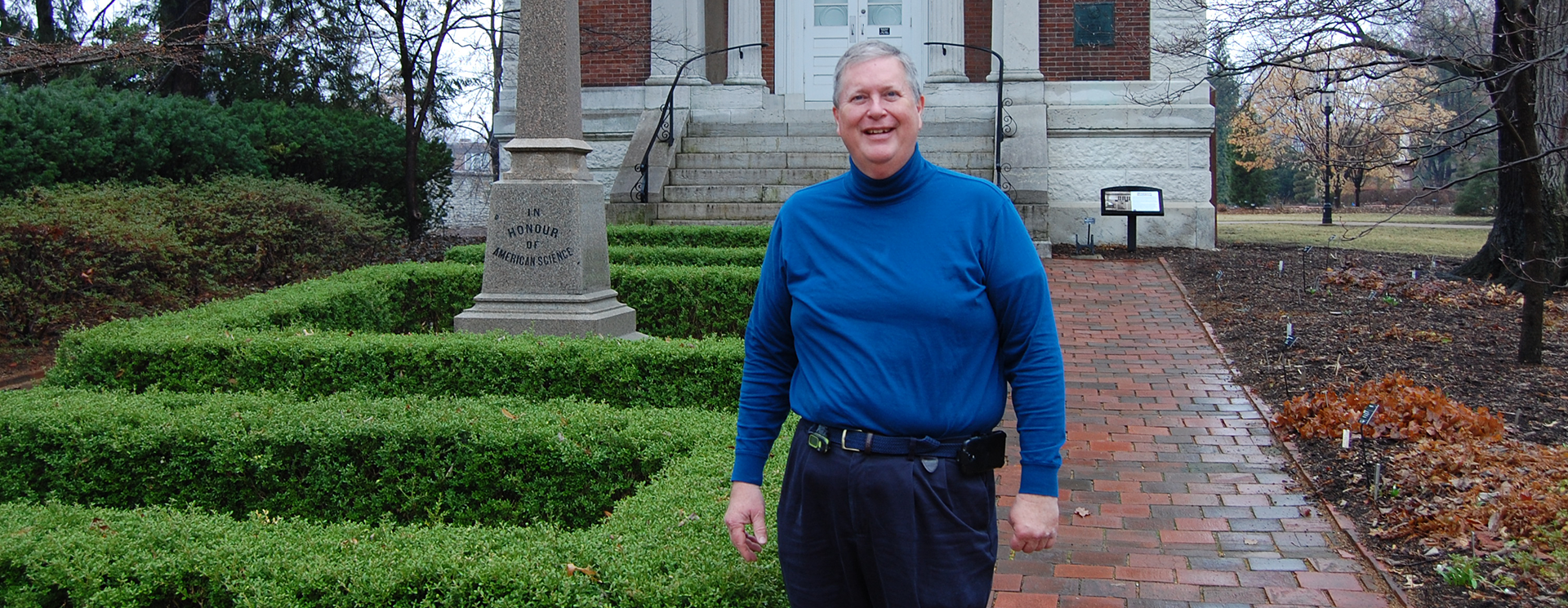Sharing the Garden with the Next Generation
Teachers are often lifelong students, and Dr. Ralph Olliges is no exception. One of the things he loves about the Missouri Botanical Garden is the diverse opportunities to learn. But what first drew him to the Garden, he says, are the plants.
“I’ve been coming to the Garden for 30 years because of the beauty and the quality of the displays,” Ralph says. “I now belong to three different plant societies. If you grow plants, you know that you will also kill plants. So I wanted to learn: Why did that die? How can I do better?”
Dr. Olliges is an associate professor in St. Louis, and it’s important for him to share his love of plants and the natural world with his students. Each semester, he connects 16 or 17 undergraduate students to the diverse wonders of the Garden through Webster University’s first-year seminar program.
“The Missouri Botanical Garden is one of the top three botanical institutions in the world,” Ralph says, “so we can share a quality experience that enhances their education. For example, we can study the gardens of China, Japan, and England and see them first-hand at the Garden. Then, my students select a garden from another culture to study and report back to the class.”
The Garden can be a connection to many different fields of study, from history to chemistry to geography and beyond, making it an ideal tool for engaging students in a first-year seminar and connecting them to a variety of topics.
“We might look at baggies of different soil types,” Ralph explains, “and talk about porous rocks, drainage, pH, acids and bases, and the chemistry of how things grow. Or each student might do a podcast on whichever one of the 23 demonstration gardens in the Kemper Center for Home Gardening interests them most. We can visit Tower Grove House and learn about changes in technology from the Victorian era on.”
Preservation of history is just as important to Dr. Olliges as the future, so he was quite excited to hear about the reopening of Henry Shaw’s Museum as part of the Garden for the World campaign. He made a gift to support that initiative and is looking forward to touring the museum with his students one day soon.
Every year or two, one of Dr. Olliges’ students will make a point of telling him they’ve become a member of the Garden. He loves being a part of sharing the Garden with a new generation and igniting interest in his students. Dr. Olliges has also joined the Heritage Society and designated the Garden as a beneficiary of his IRA to further preserve the Garden for future generations.
“The opportunity to share my excitement and see the growth in my students is so important,” Ralph says. “I’d like to see those opportunities continue far into the future.”
Learn more about giving through Beneficiary Designations.





